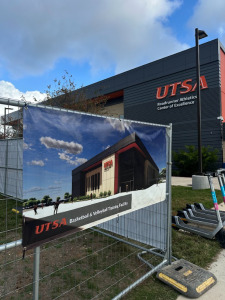Starbucks employees fight for their rights
April 5, 2022
Nationally, the fight for workers’ rights is on the rise. As we recover post-COVID-19 and go through what many call the “Great Resignation,” tensions between employees and corporations are rising, it begs the question: Will unionization be the key to protecting workers’ rights?
In early February of this year, the first Starbucks in Texas officially filed for unionization right here in San Antonio. Over the past few years, there has been a steadily increasing number of unionization efforts across the nation. There are currently 54 individual Starbucks locations across the country that have officially unionized. Hopefully, this is the start of a trend that will spread through Texas as workers fight to represent themselves.
Starbucks, as well as many other large companies, has been increasing their apparent anti-union attitudes. Management has required workers to attend anti-union meetings, send texts to associates to dissuade them from unionizing and have opened a webpage in an attempt to persuade employees to say no to unionization.
Unions, while they protect the interests of the employees, may interfere with an employer’s autonomy or affect them economically. Unions are used to represent and negotiate with employers for better wages, time off and overall better working conditions.
During the pandemic, Starbucks wrote to many of their employees requesting that they consider taking unpaid leave as many stores were under reduced hours of operation, openly blaming employees for the shorter operation and as of September, they no longer offer free drinks to their baristas during shifts. While it may seem like they are undergoing budget cuts due to revenue loss during the pandemic, that is not necessarily true. During Quarter 4 of 2021, Starbucks had a 31% increase in net profits, yet they have consequently increased their prices three times since October alone. As of last year, the Starbucks CEO, Kevin Johnson, received a 31% raise to a sum of $20.4 million annually. It would take approximately 1.3 million years for a barista employed at Starbucks to earn what he makes in a year.
As the wealth gap increases between corporate America and the working class, companies like Starbucks and Amazon have continuously exhibited their disregard for the rights of their workers. As workers and students, it is vital to protect our rights in the workplace and in our educational settings. Should we trust multinational corporations to protect our rights while they take away our benefits and demonstrate that they only care for their shareholders and executives? Unionization is the ultimate step toward job security, safe environments and protecting workers’ rights.








